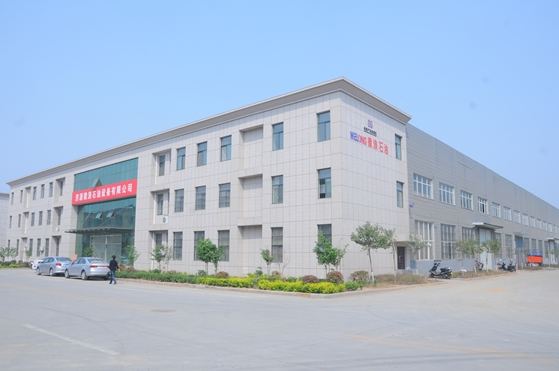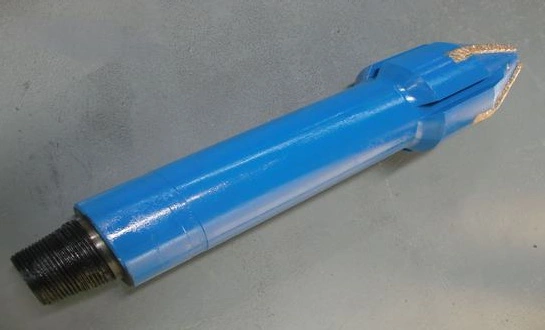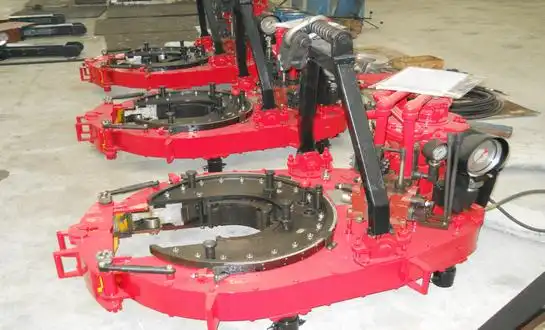What factors define a trusted global roll supplier?
Quality Assurance and Certification
A trusted global supplier of rolling mill rolls distinguishes itself through rigorous quality assurance processes and industry-recognized certifications. These suppliers invest heavily in state-of-the-art manufacturing facilities equipped with advanced testing equipment to ensure each roll meets or exceeds industry standards. Certifications such as ISO 9001 for quality management systems and industry-specific standards like those set by ASTM International demonstrate a supplier's commitment to quality and continuous improvement. Moreover, trusted suppliers often engage in collaborative research and development initiatives with steel plants and industry associations, contributing to the advancement of roll technology and performance.
Global Presence and Supply Chain Reliability
A hallmark of a trusted global roll supplier is their extensive international presence and robust supply chain network. This global footprint enables them to offer localized support while leveraging worldwide resources and expertise. Reliable suppliers maintain strategically located production facilities and distribution centers to ensure timely delivery and minimize logistical challenges. They employ sophisticated supply chain management systems to track inventory levels, forecast demand, and optimize production schedules. This global infrastructure not only enhances delivery reliability but also provides flexibility in responding to sudden changes in demand or unforeseen disruptions in the supply chain.
Technical Expertise and Customer Support
Technical proficiency and comprehensive customer support are crucial attributes of a trusted mill rolls supplier. These suppliers employ teams of experienced metallurgists, engineers, and technical specialists who offer invaluable insights into roll selection, application-specific customization, and performance optimization. They provide ongoing technical support, including on-site inspections, troubleshooting, and performance analysis to help steel plants maximize the lifespan and efficiency of their rolls. Additionally, trusted suppliers offer training programs and knowledge-sharing platforms to enhance their customers' technical capabilities and keep them abreast of the latest developments in roll technology.
How to Evaluate Global Suppliers for Rolling Mill Requirements
Assessing Product Range and Customization Capabilities
When evaluating global suppliers for rolling mill requirements, it's essential to assess their product range and customization capabilities. A comprehensive product portfolio that covers various types of rolls - from work rolls to backup rolls - for different mill configurations is indicative of a supplier's versatility and expertise. Look for suppliers who offer rolls suited for hot rolling, cold rolling, and specialty applications. Equally important is the supplier's ability to customize rolls to meet specific operational requirements. This includes tailoring roll materials, surface treatments, and geometries to optimize performance for particular steel grades or rolling conditions. Suppliers with advanced simulation and modeling capabilities can provide valuable insights into how customized rolls will perform in your specific mill environment, helping to refine designs before production.
Analyzing Performance Metrics and Case Studies
Evaluating a supplier's track record through performance metrics and case studies provides tangible evidence of their capabilities and reliability. Request data on key performance indicators such as roll life, surface quality consistency, and tonnage rolled per campaign. Look for case studies that demonstrate the supplier's ability to solve complex rolling challenges or improve mill efficiency through innovative roll solutions. Pay attention to metrics that align with your plant's specific goals, whether it's increasing productivity, improving product quality, or reducing operational costs. Suppliers who can provide documented success stories and are transparent about their performance benchmarks are more likely to be reliable partners in your rolling operations.
Evaluating Long-term Partnership Potential
Selecting a global supplier for rolling mill rolls is not just about meeting immediate needs but also about establishing a long-term partnership. Evaluate the supplier's commitment to research and development, as this indicates their ability to innovate and adapt to future industry challenges. Consider their financial stability and market position to ensure they can support your needs over the long term. Assess their willingness to engage in collaborative projects, such as joint development of new roll grades or optimization of rolling processes. A supplier that views the relationship as a partnership rather than a transactional exchange is more likely to invest in understanding your specific needs and contributing to your long-term success.

Global Supply Chain Strategies for Mill Roll Availability
Diversification of Supply Sources
Implementing a diversified supply strategy is crucial for ensuring consistent availability of mill rolls in a global market. This approach involves cultivating relationships with multiple suppliers across different geographical regions. By doing so, steel plants can mitigate risks associated with regional disruptions, such as natural disasters, political instability, or localized supply chain issues. Diversification also provides leverage in negotiations and can lead to more competitive pricing. However, it's important to balance diversification with the need for consistency in quality and specifications. Develop a tiered supplier system where primary suppliers are complemented by secondary and tertiary sources, each vetted for their ability to meet your quality standards and production requirements.
Implementing Advanced Inventory Management Systems
Efficient inventory management is pivotal in maintaining optimal mill roll availability while minimizing carrying costs. Implement advanced inventory management systems that utilize real-time data analytics and predictive modeling to forecast demand accurately. These systems should integrate with your production planning software to align roll inventory with projected manufacturing schedules. Consider implementing vendor-managed inventory (VMI) programs with trusted suppliers, where they take responsibility for maintaining agreed-upon inventory levels. This can reduce the burden on your procurement team and ensure timely replenishment. Additionally, explore the use of IoT (Internet of Things) devices to monitor roll wear and performance in real-time, enabling more precise scheduling of replacements and reducing the risk of unexpected stockouts.
Leveraging Digital Platforms for Global Sourcing
Embrace digital platforms and technologies to enhance your global sourcing capabilities for mill rolls. Utilize e-procurement systems that provide visibility into global supplier networks, enabling you to identify new sources and compare offerings efficiently. These platforms can streamline the request for quotation (RFQ) process, facilitate supplier performance tracking, and provide analytics for strategic sourcing decisions. Consider implementing blockchain technology for supply chain traceability, ensuring the authenticity and quality of rolls throughout the supply chain. Digital platforms can also facilitate collaboration with suppliers on product development and quality improvement initiatives, fostering innovation in roll technology. By leveraging these digital tools, you can create a more agile and responsive supply chain capable of adapting to changing market conditions and operational needs.
Source: CHINA WELONG-Oilfield tools Manufacturer
FAQ about Mill Rolls
What are the main types of mill rolls used in steel plants?
Mill rolls in steel plants can be categorized based on their application and position within the rolling mill. The primary rolls are the work rolls, which directly contact the steel being processed and are typically made of high-chrome steel or wear-resistant alloys. Supporting the work rolls are the backup rolls, larger rolls made of forged steel that help distribute the rolling force. In certain mill configurations, intermediate rolls are used between the work and backup rolls to provide additional support and control over the rolling process. Edger rolls are specialized rolls that control the width of the steel strip during rolling, while leveler rolls are used in the finishing stages to improve the flatness of the rolled product. Each type of roll is designed with specific material compositions and surface treatments to ensure optimal performance in its intended role within the rolling process.
How often should mill rolls be replaced or refurbished?
The frequency of mill roll replacement or refurbishment is influenced by several factors, including production volume, material being rolled, rolling conditions, roll quality, and mill configuration. Higher production rates and the use of harder or more abrasive materials typically lead to faster roll wear. Rolling conditions such as temperature, speed, and lubrication also play a significant role in determining roll life, with higher-quality rolls generally lasting longer. As a general guideline, work rolls may need replacement every few days to weeks, depending on the application, while backup rolls often last several months to a year before refurbishment is necessary. Regular inspections and performance monitoring are essential to determine the optimal replacement schedule for each operation. Implementing predictive maintenance strategies using data analytics can help optimize roll change intervals, balancing performance with cost-effectiveness.
What advancements are being made in mill roll technology?
Mill roll technology is advancing significantly to enhance performance, durability, and efficiency. Innovations in advanced materials, such as new alloys and composites, offer better wear resistance and thermal stability. Surface engineering has led to improved coating technologies and treatments that enhance hardness and reduce friction. The integration of sensors into rolls, enabling real-time monitoring of temperature, pressure, and wear, supports predictive maintenance. Customized microstructures are being tailored at a microscopic level to optimize performance for specific rolling conditions. Advanced simulation and modeling techniques are used to predict roll performance and optimize designs before manufacturing. Additionally, eco-friendly solutions and sustainable manufacturing processes are being developed for roll production, while additive manufacturing, including 3D printing, is enabling the production of rolls with complex geometries or specialized features. These innovations are enhancing roll life, product quality, and overall mill efficiency, driving the ongoing evolution of the steel industry.
In conclusion, the global supply of mill rolls is a critical aspect of steel plant operations, requiring careful consideration of supplier capabilities, quality assurance, and supply chain strategies. By partnering with trusted suppliers and implementing robust sourcing strategies, steel plants can ensure a reliable supply of high-quality rolls, optimize their rolling operations, and maintain a competitive edge in the market. For more information on innovative mill roll solutions and expert supply chain management, contact us at oiltools15@welongpost.com. Welong is committed to empowering the global steel industry with cutting-edge roll technology and comprehensive supply chain services.





